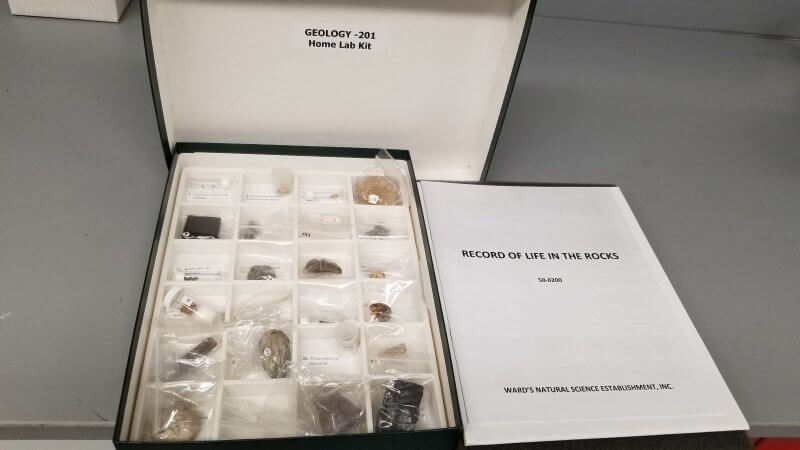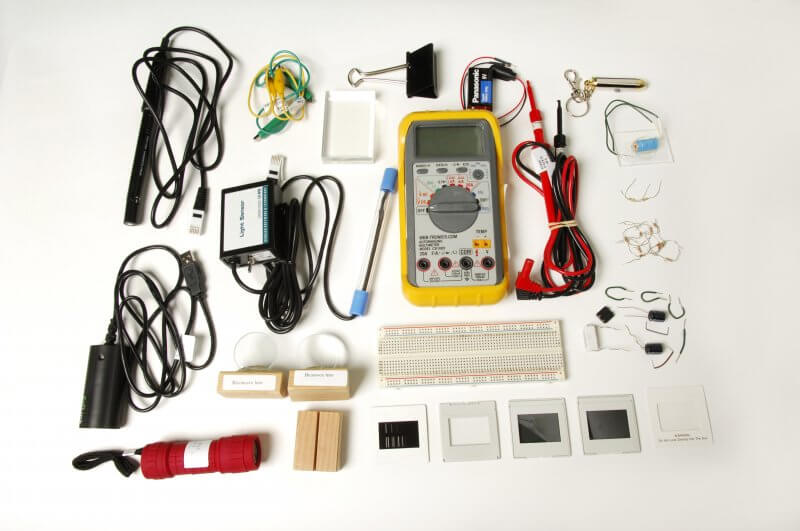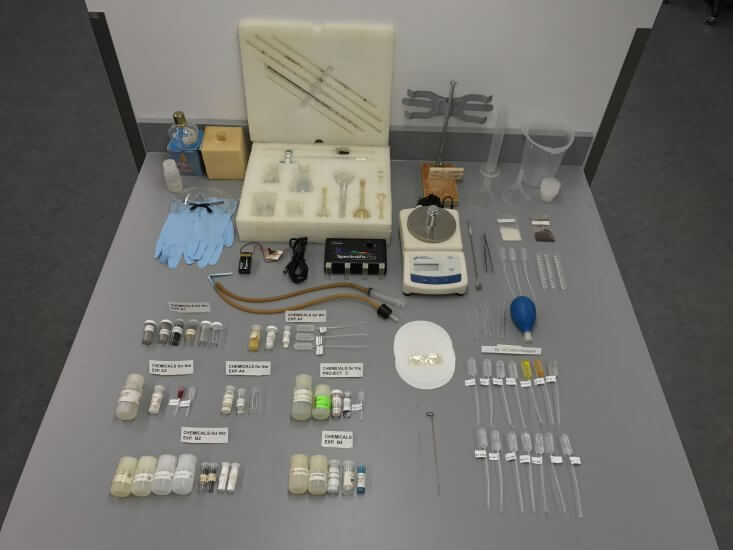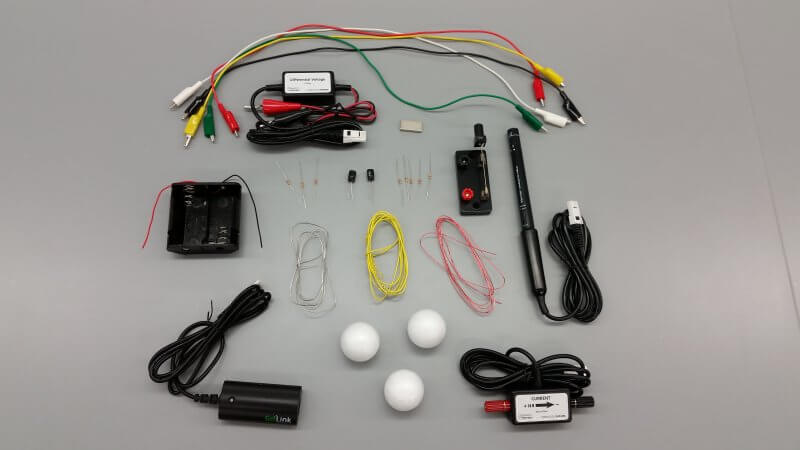AU offers science labs in the comfort of your own home
The traditional university experience for undergraduate science students includes many hours in a laboratory.

While the Athabasca University (AU) Faculty of Science & Technology does offer some in-person labs, we know that our learners can’t always do their work in a bricks-and-mortar laboratory.
Instead, AU empowers learners in many undergraduate science courses to conduct experiments from the comfort of their own home with mail-out lab kits—all included as part of the course fees.
Dr. Rafael Hakobyan, now the Senior Science Lab Manager overseeing all laboratories at AU, previously spent seven years as the Science Lab Kit Manager. In that role he sent out roughly 1,000 lab kits per year, supporting thousands of learners in working through their take-home lab assignments.
Courses and subjects

Courses with take-home lab components are undergraduate-level science courses in chemistry, biology, geology, and physics.
Some courses—Biology 204, Geology 200, and Geology 207—do not require students to make a request, as the kits are shipped to students upon registration. For others, learners must request the lab kits to be prepared and shipped out to them.
Lab kits for some courses in physics have been replaced with instructions for experiments learners can conduct using readily available software and everyday items.
“The lab component for these courses is designed to provide quality hands-on physics experiments which utilize the widely available smartphone and some household items,” Hakobyan said.
Depending on the course, it’s possible the lab kit can only be shipped within Canada. For other courses, physics for example, the kits can be shipped anywhere in the world.
A full list of the 12 courses with at-home lab components, and instructions on how students can request kits for the courses that require them, can be found on the Science Labs website.
What to expect

Once the student has made the request, Hakobyan said the the lab kits are prepared and are typically sent out within seven to 10 days. Upon receiving the kits, students are able to keep them for two months, and can also request an extension if they need more time.
“In the lab manuals, it is usually provided the approximate time that the student needs to finish the given experiment, but we always give students plenty of time to perform experiments at their own pace,” he said.
The kits include all the materials and equipment needed to complete the experiments. When the learner has finished, they can use the prepaid shipping label that came with their lab kit to ship it back to AU, free of charge.
There is no cost to access the lab kits. Hakobyan said in cases where students need to request additional materials to repeat an experiment—and even if they inadvertently damage equipment and need to have it replaced—AU will ship those parts for free.
“We charge students only if students do not return the entire lab kit back,” he said. “For example, the cost of the Chemistry 217 lab kit is $1,200; it contains very expensive devices like a spectrophotometer and pan balances.”
Positive feedback

Hakobyan said he has had extensive positive feedback from students over the years, including making recommendations to improve the process and having phone conversations with students to offer them personal support with their questions.
“My goal is to be sure that the student got the complete answer to his or her questions raised, and I always try to answer as soon as possible,” he said.
Feedback from learners reflects his dedication, with countless emails expressing appreciation for his support on their learning journeys. His work has even been recognized with AU’s Sue and Derrick Rowlandson Memorial Award for Service Excellence in 2015.
Hakobyan has been promoted to a more supervisory role, overseeing laboratories at AU, and said the new Science Lab Kit Manager Bahaar Sehgal will pick up where he left off, continuing with the methods and approach he developed and providing the same high level of service to learners.
Whether you’re looking to complete a degree program or just finish a couple course, AU’s Faculty of Science & Technology has an option for you! Take a look at our course listings to see what we have to offer.